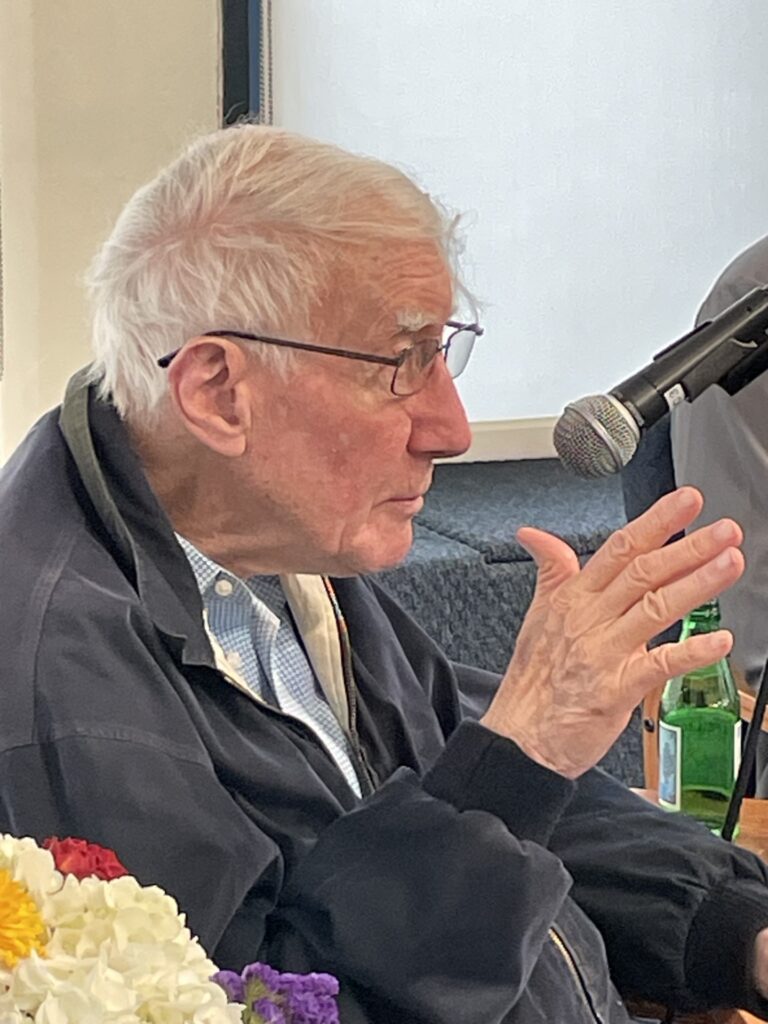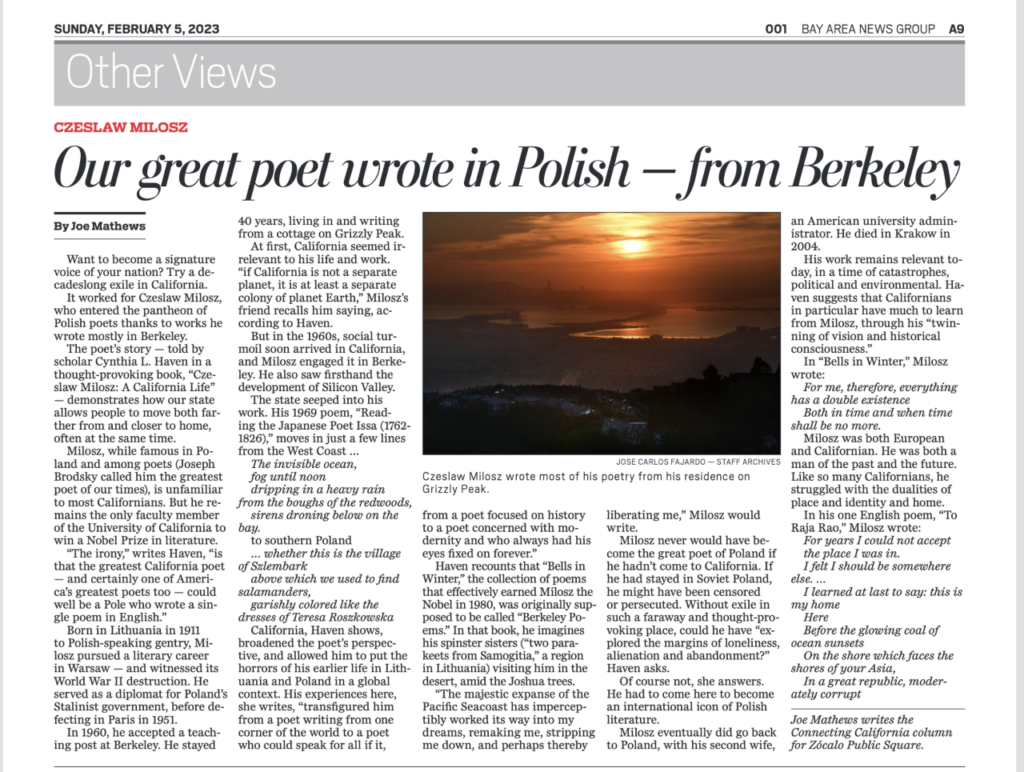Czesław Miłosz and the “wonder eclipse”
Tuesday, January 9th, 2024
In 2022, Tikkun published an article by the writer Lucien Zell, “The Wonder Eclipse: Scaling the Cliffs of Milosz,” in which he discusses his six-week “Community of Writers” master class led by Pulitzer-prizewinning poet Robert Hass. The inevitable subject was Czesław Miłosz, since Hass’s life was transfigured by his contact with the Polish Nobelist. Hass became his foremost translator into English. Well, so many lives were changed by Miłosz. Mine too.
Zell discusses an interesting translation imbroglio with Miłosz’s 1936 poem “Encounter” in which the poet recalls a wagon ride through frozen Lithuanian fields at dawn. The final lines are famous:

O my love, where are they, where are they going
The flash of a hand, streak of movement, rustle of pebbles.
I ask not out of sorrow, but in wonder. (Trans. by the poet and Lillian Vallee)
However, on a trip to Poland, another Polish poet told Hass that the poem’s final word (in Polish: zamyślenia) meant, not ‘wonder’, but, rather, ‘pensive contemplation’. “In class, Hass’s sharp scowl well-described his shock and dismay at his ‘poor’ translation . . . till, upon returning to Berkeley and rechecking his notes, he confirmed, breaking into a relieved chuckle, that Milosz himself had suggested ‘wonder’ as the appropriate English rendering of the term. In one of my course’s break-out rooms, we discussed the possibility that Milosz’s perspective had shifted enough to revise his initial poetic impulse, to the extent that by the time he found himself exiled to California (circa 1960s-70s-80s), his own ‘pensive contemplation’ had transmuted to ‘wonder.’”
Hass also described a moment when a colleague, recalling Milosz’s experiences of war and displacement, diagnosed Miłosz with ‘survivor’s guilt.’ Hass corrected him: “No, not guilt—wonder.” As Miłosz wrote in Witness of Poetry: “What surrounds us, here and now, is not guaranteed. It could just as well not exist—and so man constructs poetry out of the remnants found in ruins.” And so, I suspect, we construct our lives, too.

“Joseph Brodsky thinks one basic mark of my poetry,” Milosz remarked, in an interview with Renata Gorczyńska, “is the constant regret that human experience eludes description.” Zell recalled what Milosz wrote in a passage from his poem “Notes”: “CONSOLATION: Calm down. Both your sins and your good deeds will be lost in oblivion.”
Read the rest here. And read the whole poem “Encounter” here.
Postscript: Meanwhile, don’t forget to read my own take on the great poet of California, who happened to write in Polish in Czesław Miłosz: A California Life. (Articles about that here.)
According to Cory Oldweiler writing about Czesław Miłosz: A California Life (Berkeley: Heyday Books, 2021) in The Los Angeles Review of Books, “Haven lets us into her thought processes, even when she is questioning them, and lovingly recreates conversations — in the relative present, at a café with Robert Hass as they thumb through Miłosz’s 2001 volume New and Collected Poems; and in the recent past, at Miłosz’s Grizzly Peak home as the poet drinks bourbon and chats with friends into the wee hours.”
Said Ilya Kaminsky, author of Deaf Republic: “Czesław Miłosz: A California Life asks about the meaning of exile, about the possibilities of a new home, about the transformation of a poetic perspective, about alienation and the building of literary bridges. But in the end, the book asks one big, nearly impossible question: How did the great Polish exile Miłosz change his newfound home—and how did California, after so many years, transform Miłosz’s own metaphysics? For it is a metaphysical question, after all: How does a place change the poet, and what does a poet do to shift our perspective on the place? On this unending journey, Cynthia L. Haven is an illuminating guide, one who brings knowledge, precision, and grace. There is much to learn from this book about Miłosz and California, yes, but also about poetry and the world.”
Eminent critic Leon Wieseltier had the final word: “Cynthia Haven’s book is delicious. She evokes so much so vividly and so intelligently; for me her pages were a restoration of a richer and less lonely time. And her intuition is right: Czeslaw Milosz and California are indeed a chapter in each other’s history.”
Accept no imitations!











